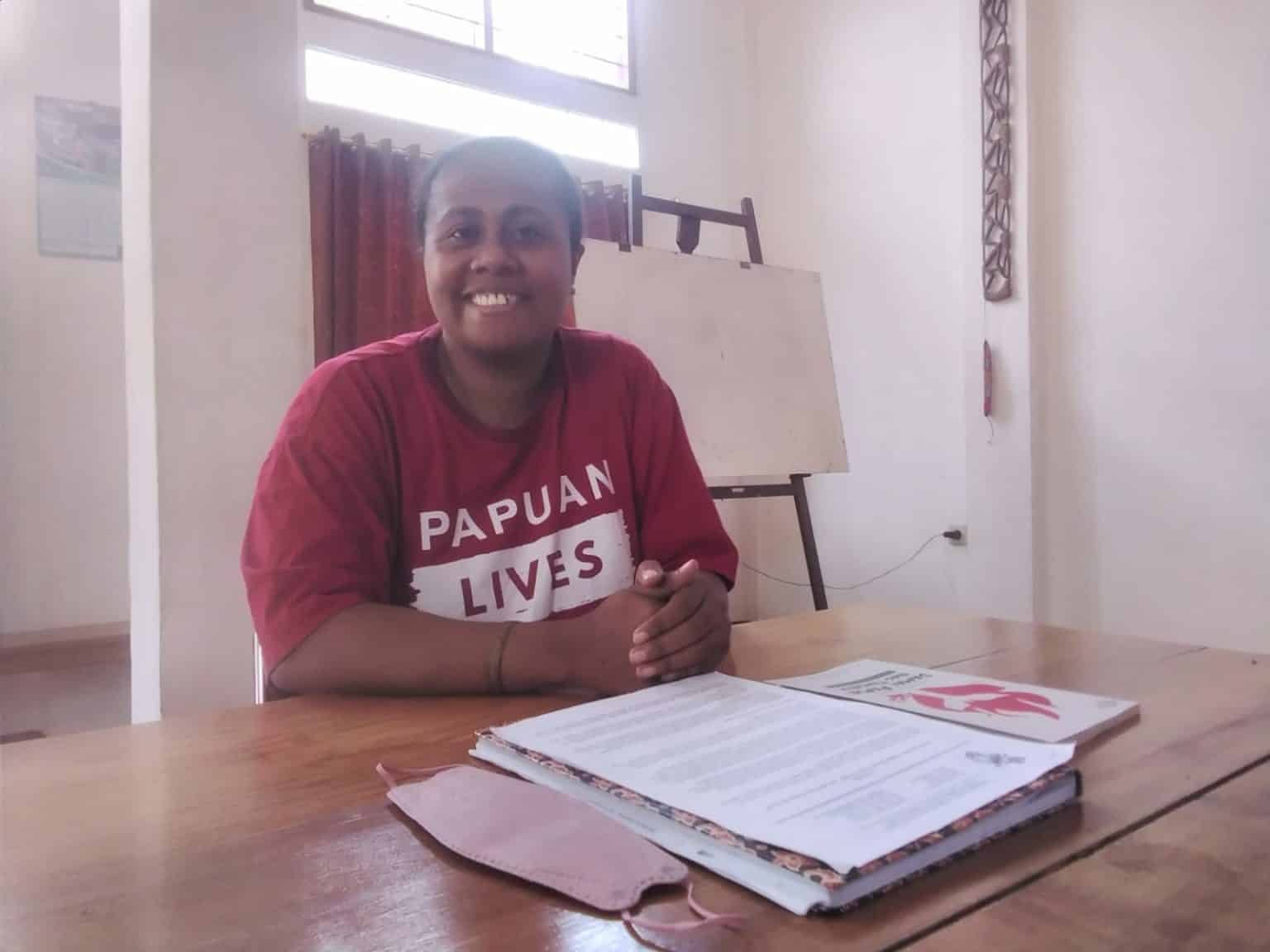Sentani, Jubi – Director of the Secretariat for Justice, Peace and Integrity of Creation (SKPKC) Papua Franciscan Yuliana Langowuyo said efforts to create Papua as a land of peace could not only be carried out by Papuans. All citizens living in Papua must contribute to building Papua as a land of peace, she said.
“Papuans do not have to fight alone themselves to make Papua a land of peace. The struggle toward peace must be the struggle of all people living in Papua,” Langowuyo said in Sentani, the capital of Jayapura Regency, on Wednesday, March 30, 2022.
She said that everyone who lives in Papua must prevent horizontal conflicts from occurring. “At least no horizontal conflict at the community level. Let there be interactions between people of different ethnicities, religions, and races in Papua,” she said.
Langowuyo said all Papua citizens should be aware that Papua faced political problems, exploitation of natural resources, and militarism. “The problem is still ongoing to date, making people in Papua the victims of conflict of interests,” said Langowuyo.
According to Langowuyo, many parties had worked for peace in Papua, thus, she was hopeful. “Peace can exist in Papua, but this effort requires the contribution of all parties to reduce the burden of the state violence against Papuans. Don’t let Papuans fend for themselves. But make it the struggle of all people living in the Land of Papua,” she said.
On Wednesday, the SKPKC Papua Franciscan launched the book “Damai Papua Yang Tercabik” (The Peace of Papua Torn Apart). The book is part of the SKPKC’s Memoria Passionis Series and was written by Bernard Koten, Yuliana Languwuyo, and Theo van den Broek.
Bernard Koten explained the reason behind the book’s publication. “In 2020, the world including Papua was attacked by the COVID-19 virus. COVID-19 cases are in the news every day in Papua, various media tell of the severity of the virus,” said Koten. But on the other hand, Koten said, Indigenous Papuans also faced other threats, various cases of violence and human rights violations continue to occur.
“For example, legal injustice following anti-racism protests, the Papua Special Autonomy, armed conflicts, restraints of freedom of expression, the negative impact of Job Creation Law, and so on,” he said.
Koten said that the SKPKC Papua Franciscan recorded and published those situations in the book as various challenges to realizing Papua as a land of peace.
“Recording and publishing the people’s journey and struggle in Papua has become the annual agenda of the SKPKC Papua Franciscan since 1999. This is the Memoria Passionis Series Number 39,” he said. (*)













